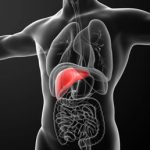 When we discuss digestion problems we usually only talk about two things: The stomach and our bowel movements. Either there’s a rumble in our stomach, we can’t go or we go too often.
When we discuss digestion problems we usually only talk about two things: The stomach and our bowel movements. Either there’s a rumble in our stomach, we can’t go or we go too often.
But frankly, our digestive system encompasses a lot more than just our stomach and eliminating the waste from what we eat. Digestive disorders can occur anywhere from the top of our esophagus, right down to the colon, so you can only imagine the many problems that can occur.
Advertisement
Without realizing it, you may be suffering from a common digestive problem but didn’t even know it was part of digestion at all. For example, do you have frequent heartburn? Well, that in itself is a digestion problem that needs to be taken care of, especially if it happens often.
If you’re concerned about your digestion, here are the top common digestive disorders in the United States and how you can treat them.
Digestive disorders in America
According to the National Institute of Diabetes and Digestive and Kidney Disease (NIDDKD), these are the top digestive disorders in the United States in order of their prevalence:
| Digestive disease | Mortality (annually) | Prevalence (millions) |
|---|---|---|
| Gastrointestinal infections | 11,022 | 135 |
| Chronic constipation | 132 | 63 |
| Gastroesophageal reflux disease | 1,653 | 60 |
| Gallstones | 994 | 20 |
| Peptic ulcer disease | 2,981 | 15.5 |
| Viral hepatitis C | 6,844 | 3.9 |
| Abdominal wall hernia | 1,322 | 3.6* |
| Liver disease | 42,923 | 3 |
| Diverticular disease | 2,889 | 2.2 |
| Pancreatitis | 3,413 | 1.1 |
Note: *Ambulatory care visits: The number of specific disease-related visits made annually to office-based health care providers, hospital outpatient clinics, and emergency departments.
As you can see, there is an array of digestive disorders than can affect many different parts of the digestive system as a whole. Now that we know the top digestive disorders in the United States, let’s further examine each in more detail.
Top 10 disorders affecting digestion
 Gastrointestinal infections: Gastrointestinal infections are either viral, bacterial or happen because of a parasite. Inflammation occurs in the stomach and intestines and can lead to symptoms of diarrhea, vomiting and abdominal pain. Staying hydrated is optimal treatment for gastrointestinal infections because you may lose a lot of fluid.
Gastrointestinal infections: Gastrointestinal infections are either viral, bacterial or happen because of a parasite. Inflammation occurs in the stomach and intestines and can lead to symptoms of diarrhea, vomiting and abdominal pain. Staying hydrated is optimal treatment for gastrointestinal infections because you may lose a lot of fluid.
Gastrointestinal infections can be caused by a variety of microorganisms which include: Adenovirus, campylobacter, E. coli, Clostridium difficile, rotavirus, H. pylori and salmonella. Many of these can be caused by poor food preparation, so to avoid them, it’s best to take a few notes on food preparation and safety.
For best prevention against gastrointestinal infections, disinfection of surfaces is key. Furthermore, ensure food is stored and prepared safely. Treatment may involve antibiotics if the infection is bacterial, and hydration is also important.
Related reading: The 7 Most Common Stomach Ailments, and What to Do About Them
Chronic constipation: Chronic constipation is several days without a normal bowel movement. You may find your bowels are hard, you are sitting there pushing and you’re rarely going at all. Chronic constipation can lead to health problems as your body is not properly removing the waste after digestion and so toxins can linger in your colon.
Chronic constipation may be caused by diet, for example not having enough fiber and water, or enjoying too much fat. Illness and medications may also lead to chronic constipation so seeking medical advice is recommended.
Easy natural means to prevent this common digestive disorder is by increasing your fluid and fiber intake. If you only increase your fiber without drinking more water, the constipation will only worsen. Fiber can be found in whole grains as well as dark leafy greens so you have a few options. Treatment should not involve taking laxatives daily as over time, these can be hard your colon and intestines. As suggested though, if natural means don’t work, see your doctor as it may be a symptom of more serious illness.
Related reading: Constipation causing foods to avoid and foods to eat for relief
 Gastroesophageal reflux disease: Commonly referred to as GERD, this common digestive disorder occurs when acid from the stomach enters the esophagus because the lower part of it – the esophagus sphincter – relaxes at the wrong time. GERD is quite serious and may lead to esophagus cancer.
Gastroesophageal reflux disease: Commonly referred to as GERD, this common digestive disorder occurs when acid from the stomach enters the esophagus because the lower part of it – the esophagus sphincter – relaxes at the wrong time. GERD is quite serious and may lead to esophagus cancer.
The symptom of GERD is heartburn and you may experience a burning sensation followed by a bad taste in your mouth. Some people may even find food that has come back up. Some foods can lead to heartburn as well as medications, pregnancy and drinking alcohol.
Treatment of GERD involves medications which limit the amount of acid in the stomach. In severe cases, surgery may be advised for the esophagus and stomach.
Related reading: Plagued by heartburn and acid reflux: Gastroesophageal reflux disease (GERD)
Gallstones: Gallstones are the product of cholesterol and bile, and this may result in infection, irritation and inflammation. Gallbladder removal is one of the most common surgeries in the U.S. and is the main treatment for removing gallstones.
Pain can be sudden and you will feel it most in your right upper abdomen or between the shoulder blades. Severe pain may also be linked with nausea and vomiting – heading to the ER is necessary.
Risk factors for gallstones are obesity and gaining or losing weight rapidly. Therefore, proper prevention of gallstones is to maintain a healthy weight.
Related reading: Never ignore these stomach pains
Peptic ulcer disease: Peptic ulcer disease is most commonly caused by H. pylori and will cause stomach pains. The bacteria disrupts the protective layer within the stomach leading to ulcers. These sores can also be caused by smoking and excessive use of anti-inflammatory drugs. The common belief that too much stress can lead to an ulcer is untrue. Stress may aggravate ulcers but is not a cause of them.
Untreated peptic ulcer disease can lead to internal bleeding as well as serious infection. Prevention of this common digestive disorder then is not to smoke and limit use of anti-inflammatory drugs.
Related reading: Best natural home remedies for ulcers
 Viral hepatitis C: Hepatitis C is an infection of the liver caused by a virus. You wouldn’t think it was part of common digestive disorders but everything we consume passes through the liver, making the liver very much part of the digestive system. The Hep C Liver Foundation estimates that nearly 4 million Americans are living with hepatitis C.
Viral hepatitis C: Hepatitis C is an infection of the liver caused by a virus. You wouldn’t think it was part of common digestive disorders but everything we consume passes through the liver, making the liver very much part of the digestive system. The Hep C Liver Foundation estimates that nearly 4 million Americans are living with hepatitis C.
Hepatitis C can be virtually symptomless and unless someone is getting routinely checked by a doctor, it may go undiagnosed for years. Acute hepatitis C will clear up on its own but chronic hepatitis C will never go away.
Risk factors for hepatitis C include sharing needles, unsterile tattoo machines and piercings, being in contact with infected blood – most common for those in the health field – and having unprotected sex with multiple partners. Following proper safety measures if you work in the health field is key for prevention of hepatitis C. If you are looking to get a tattoo or a piecing, make sure the facility is high quality and passes regulations.
Related reading: Hepatitis C responsible for more liver damage than estimated
Abdominal wall hernia: There are many different types of hernias but one of the top digestive diseases in the United States includes abdominal wall hernia. In this type of hernia, a noticeable bulge may occur and can lead to discomfort. Men are more likely to develop an abdominal wall hernia and it’s commonly diagnosed by a doctor.
Injury to the stomach may cause the stomach wall to weaken, and so avoiding any stomach trauma may reduce your risk of developing an abdominal wall hernia. Obesity has been shown to be a factor for developing this form of hernia, so maintaining a healthy weight is also ideal. Treatment often involves surgery and if it’s not too severe a doctor may be able to push it back in.
Related reading: Abdominal wall hernia symptoms, types, causes and prevention
 Liver disease: As mentioned, the liver is heavily involved in the digestive system as it aids in digestion and the breaking down of food. There are more than 100 different types of liver disease from numerous causes: Excess fat, alcohol, hepatitis C and many more. Although the liver itself won’t cause pain, symptoms of liver disease include jaundice, abdominal pain, itchy skin, dark urine, pale, bloody or tar-colored stool, bruising easily, nausea, vomiting and fatigue.
Liver disease: As mentioned, the liver is heavily involved in the digestive system as it aids in digestion and the breaking down of food. There are more than 100 different types of liver disease from numerous causes: Excess fat, alcohol, hepatitis C and many more. Although the liver itself won’t cause pain, symptoms of liver disease include jaundice, abdominal pain, itchy skin, dark urine, pale, bloody or tar-colored stool, bruising easily, nausea, vomiting and fatigue.
Because there are so many different types of liver disease, prevention is extensive. Moderate your alcohol consumption, get vaccinated from hepatitis, maintain a healthy weight and use medications as advised are just some means of prevention from this common liver problem.
Related reading: How to know if your liver function is deteriorating
Diverticulitis: Similar to a hernia, diverticulitis occurs within the intestines and colon and produces bulges or sacks along the lining. This digestive disorder can be quite mild and symptomless or lead to fever, pain, constipation and diarrhea. If these pouches burst they can lead to fecal bacteria entering the stomach.
If diverticulitis is symptomless you don’t have to worry much about treating it. If you do run into complications, though, antibiotics may be prescribed. Diverticulitis often appears with aging, so although you can’t stop aging, preventing constipation may be a means of preventing diverticulitis.
Related reading: Diverticulitis causes, symptoms and prevention
 Pancreatitis: Inflammation of the pancreas leads to pancreatitis. The pancreas is essential for the digestive system because it produces enzymes which help digestion and process sugar. Similar to hepatitis C, pancreatitis can be acute or chronic, meaning it can go away on its own in a short amount of time or stay with the person.
Pancreatitis: Inflammation of the pancreas leads to pancreatitis. The pancreas is essential for the digestive system because it produces enzymes which help digestion and process sugar. Similar to hepatitis C, pancreatitis can be acute or chronic, meaning it can go away on its own in a short amount of time or stay with the person.
Symptoms of pancreatitis include abdominal pain, pain that travels to the back, abdominal pain which worsens after a meal, nausea, vomiting, unintentional weight loss and tenderness of the abdomen.
The causes of pancreatitis are numerous, but some main causes of this common digestive disorder are alcoholism, smoking, infection, injury to the abdomen, family history and cystic fibrosis.
Severe pancreatitis requires a visit to the hospital where doctors can begin to treat the underlying cause of the digestive disorder. Home remedies include following a healthy lifestyle of quitting smoking, eating well and keeping a healthy weight.
Related reading: Acute pancreatitis causes and treatment
Becoming aware of common digestive disorders
You have now realized how extensive digestive disorders can be. Digestive disorders encompass all aspects of the digestive system and are not limited to the stomach and bowels. Although we highlighted the top 10 digestive diseases in the United States, there are many more to consider.
Advertisement
Some other common digestive disorders worth mentioning are Crohn’s disease and ulcerative colitis, irritable bowel syndrome (IBS), celiac disease and food intolerances. These, as well, can cause much distress to your digestive system.
Many of these common digestive problems can be prevented through healthy lifestyle habits, so if you’re looking to keep your digestive system healthy and problem-free, simply eating well, exercising and avoiding bad habits is the first and best step.
On another note, many of these common digestive problems have similar symptoms so it may be confusing to pinpoint which one you have. By monitoring your symptoms – how often they occur, when they occur, etc. – you can help your doctor identify which digestive disorder you have so that treatment can begin right away.
